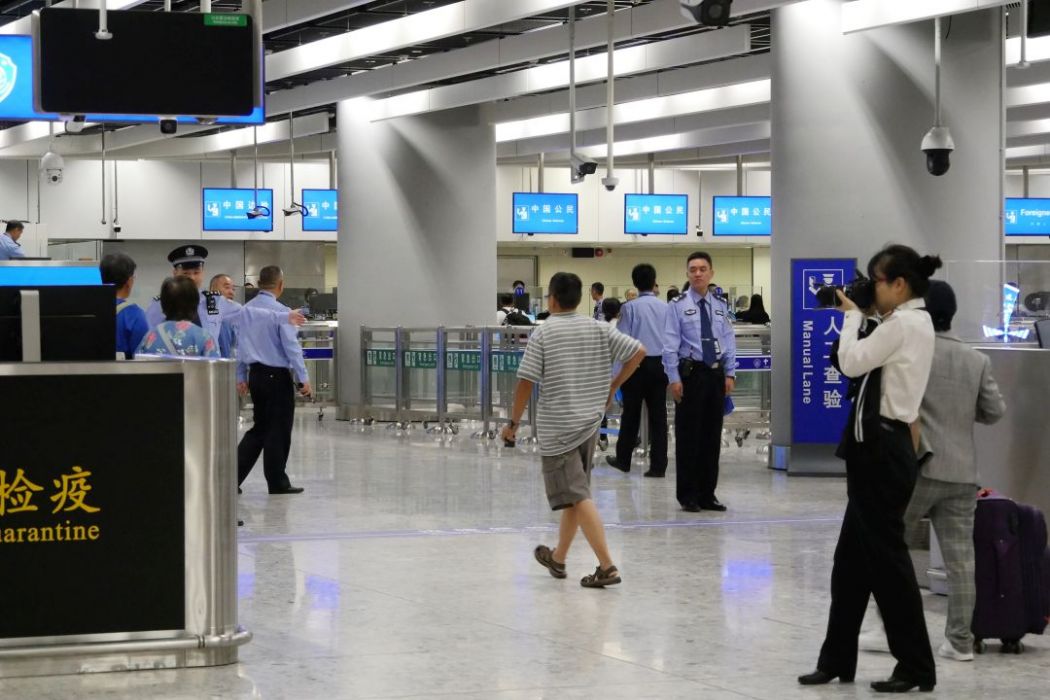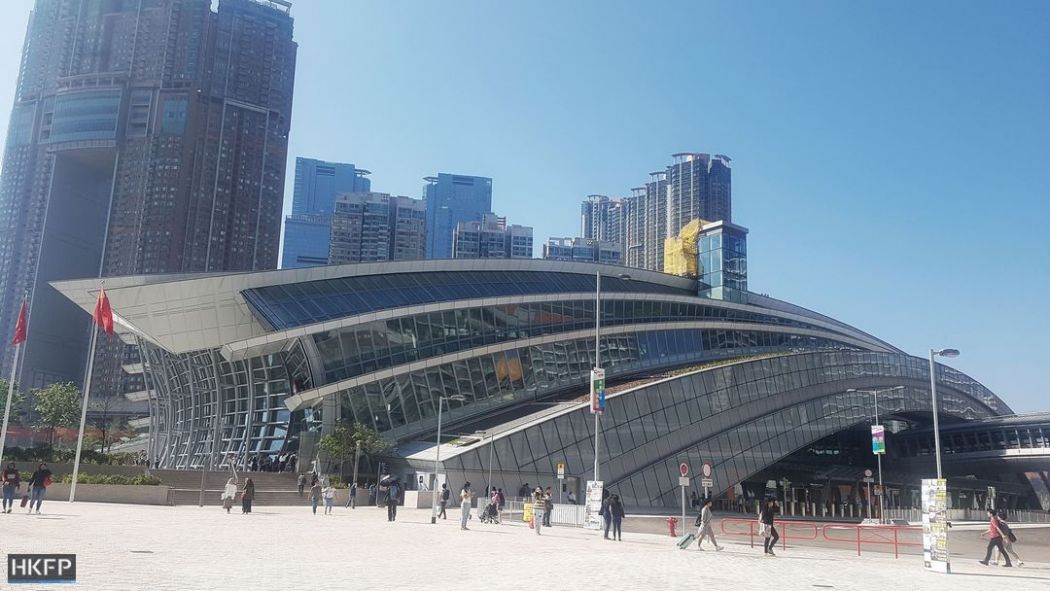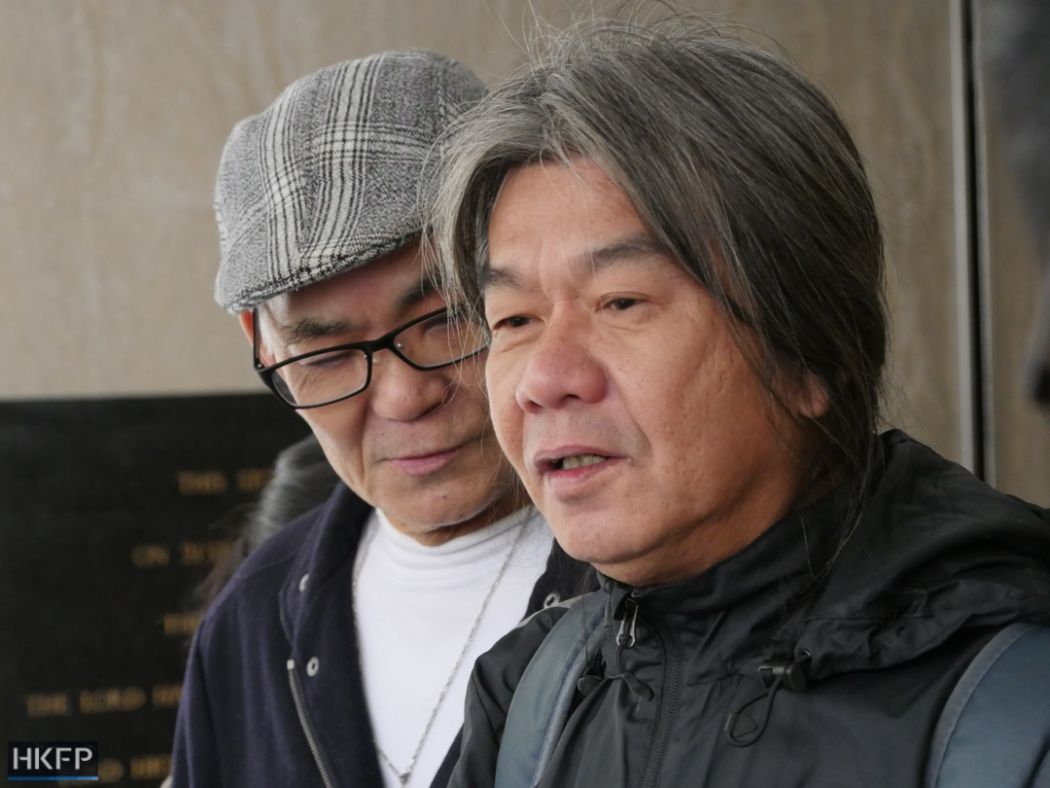The Court of First Instance ruled on Thursday that the joint checkpoint arrangement at the West Kowloon railway terminal is constitutional and can remain in operation.
The judgment came after four people filed legal challenges asking the court to strike down the law authorising the immigration facility. Their cases were heard together in October.

In his 67-page judgment, Judge Anderson Chow ruled on Thursday that the law authorising the joint checkpoint arrangement was consistent with the Basic Law. All four judicial review applications were rejected.
One of the applicants ‘Long Hair’ Leung Kwok-hung said the applicants were planning to appeal.
“Upon a fair reading of the Basic Law establishing a broad framework for the exercise of a high degree of autonomy by Hong Kong, it is open to the legislature of Hong Kong to enact the Ordinance,” Chow wrote.
He added that the Basic Law was a “living instrument” that would change with the times.
Joint checkpoint controversy
The joint checkpoint arrangement was first proposed by the government to speed up passenger clearance. Hong Kong and mainland officials will conduct immigration and customs procedure at the same location, instead of separately at the points of departure and arrival.

The highest lawmaking body in China – the Standing Committee of the National People’s Congress (NPCSC) – issued a decision last December stating that the joint checkpoint was lawful.
However, critics such as the democrats and the Hong Kong Bar Association argued that the arrangement would effectively cede land to China, which was unconstitutional and would hurt Hong Kong’s autonomy.
See also: Explainer: The controversial joint checkpoint arrangement for Hong Kong’s Express Rail Link
The joint checkpoint arrangement was passed into local law in June amidst widespread controversy. The railway terminal has since started operation, and a quarter of its area is now governed by Chinese law.
On Thursday, Chow said in his judgment that the NPCSC decision was “carefully considered” and should be regarded as having “high persuasive value.”

“The Hong Kong courts have no power, in my view, to determine whether the NPCSC Decision was invalid under Hong Kong laws,” he added, saying that local courts lacked jurisdiction.
While recognising the NPCSC decision to be persuasive, Chow shied away from wider questions about its status and legal effect. He said that it would not be appropriate for a first instance judge to comment on those questions when they were not strictly necessary for him to reach a conclusion.
Nevertheless, Chow said he did not mean that the joint checkpoint arrangement could necessarily be repeated. Any subsequent case will have be examined on its own facts and circumstances, he said.
Judge was ‘like water’
Speaking after the judgment, Leung Kwok-hung said the legal battle was not yet over because the applicants planned to appeal.

“It used to be that the NPCSC would interpret a specific law, now they interpret a bunch of laws and say that, in any case [the arrangement] will comply with the Basic Law,” Leung said.
He also compared local judges to “traditional Chinese medicine pharmacists” – who often have to decipher the illegible handwriting in doctors’ notes.
“If [local judges] have to decipher the intentions of the NPCSC, then the rule of law in Hong Kong would be like water,” Leung added.
“I hope the legal sector will show some professionalism and explain the decision.”

On Thursday, Chow also ordered that the judicial review applicants did not need to pay the legal fees of the government, despite losing. This was because the case was related to matters of “great, general and public importance” and because the applicants were not motivated by self-interest.
However, applicant Baggio Leung was ordered to pay the legal costs of the President of the Legislative Council, since Leung had “unnecessarily dragged” him into the case in the early stages of proceedings, Chow said.
